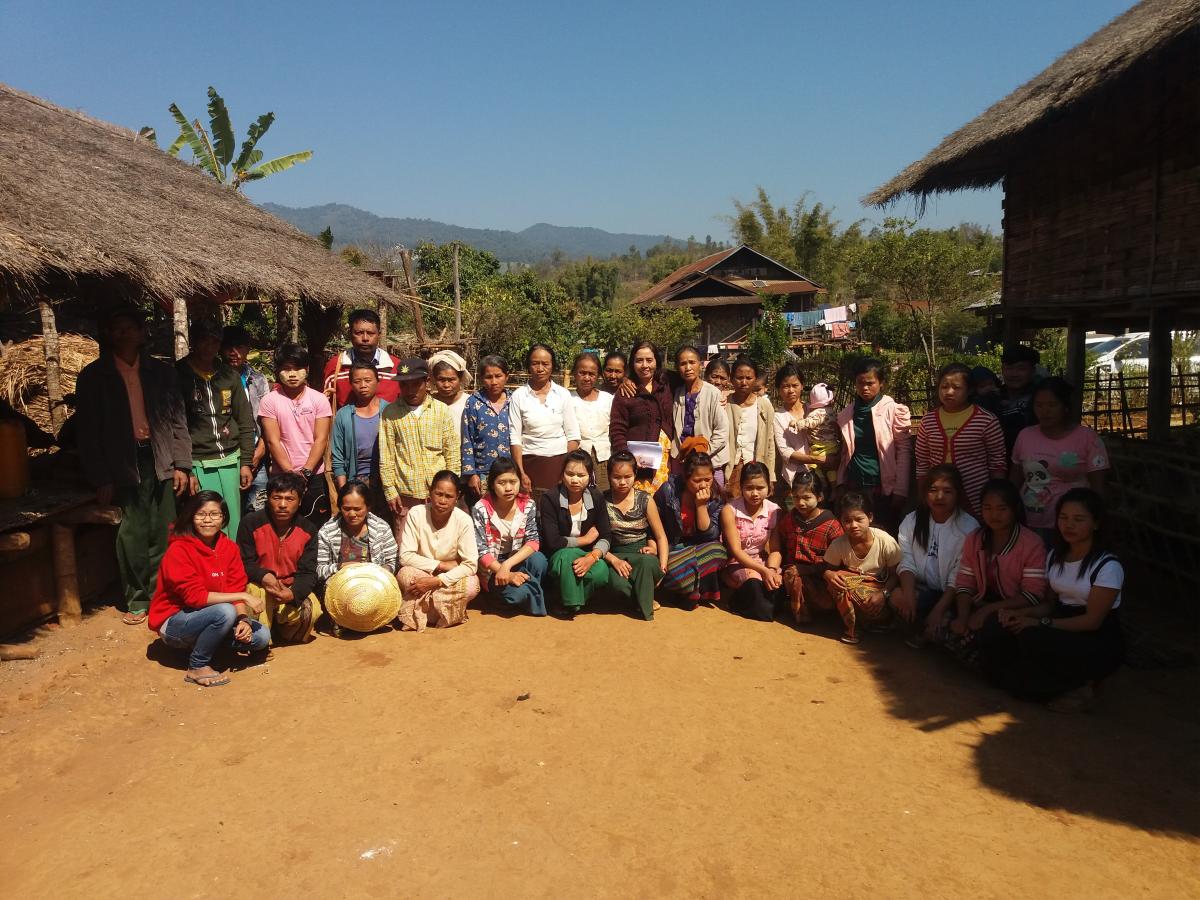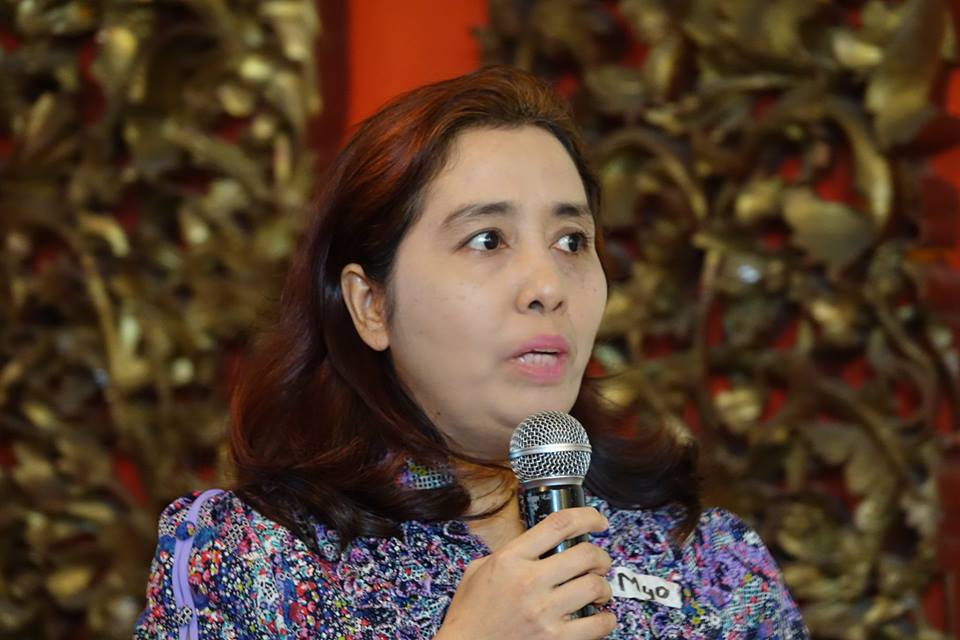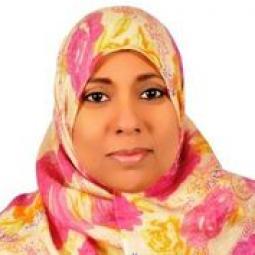
Myo Ma Ma Than
Agricultural Sciences
Championing Female-Led Farming in Myanmar
We’re waiting to get new opportunities for our future…We stay in our country, we try our best.
Agricultural scientist Myo Ma Ma Than is working to empower women in Myanmar’s agricultural economy, an approach she calls female-led farming. “Agriculture is the backbone of Myanmar’s rural economy,” she explains. Seventy percent of the country’s population lives in rural areas, and their livelihoods rely on the agriculture sector—including women. But “the female role is invisible.” When the Myanmar Department of Agriculture provides agricultural knowledge or technical training to farmers, she explains, only the head of the household – nearly always a man – is invited. Women are less frequently found in decision making roles, which often leads to them being excluded economically as well, with less access to loans and little say over how agricultural income is spent within the household.
 In the female-led farming projects that Myo Ma Ma Than develops and implements, women are trained in various aspects of agriculture all the way up the value chain, from seed selection and production to land preparation, integrated pest management and post-harvest techniques, to marketing. Through the NGO Network Activities Group (NAG) where she worked until recently, and now as a freelance consultant, she works in rural communities in Man Pan (northern Shan state) and Kayin, two remote regions in southeastern Myanmar, where education levels are low and access to social and financial services is very limited.
In the female-led farming projects that Myo Ma Ma Than develops and implements, women are trained in various aspects of agriculture all the way up the value chain, from seed selection and production to land preparation, integrated pest management and post-harvest techniques, to marketing. Through the NGO Network Activities Group (NAG) where she worked until recently, and now as a freelance consultant, she works in rural communities in Man Pan (northern Shan state) and Kayin, two remote regions in southeastern Myanmar, where education levels are low and access to social and financial services is very limited.
Recruitment for the programmes and gaining community buy-in can be tricky. Engaging men in the targeted communities is critical to success, Than explains. “We are not leaving the males…we cannot discriminate between males and females, but we encourage females’ participation.”
In addition to female-led farming, Myo Ma Ma Than has worked on many other issues in the agricultural sector. Agriculture is at the center of life for most people in Myanmar; yet commonly followed agricultural practices can put both people and habitats at risk. “People are using lots of chemicals for growing – pesticides, fungicides – so we eat that food. Food safety is very important.” Access to affordable and nutritious food is another pressing issue, with 1 in 4 people in the country living with food insecurity [WFP]. Myo Ma Ma Than knew from early on that she wanted to do a PhD in plant science, to help advance the knowledge base in the country. “We want to learn…Our neighboring countries, Thailand, India, China, they are very advanced in the agricultural sector… Like other countries, we want our country to be developed.”
 In 2004, Myo Ma Ma Than was awarded an OWSD fellowship to pursue a PhD at the University of Calcutta in India. There, she studied the endangered orchid Bulbophyllum auricomum Lindl., the royal flower of Myanmar. Myanmar is home to somewhere between 1000-1500 species of orchids, but little research has been done about the karyomorphology, or chromosomal structure, of the Orchidaceae family generally. This information can tell a lot about plants’ origins, evolution, and adaptability under various conditions. Using DNA fingerprinting profiles, Myo Ma Ma Than was able to detect and characterize genetic variability in orchid seed stock, which could lead to improved in vitro conservation methods.
In 2004, Myo Ma Ma Than was awarded an OWSD fellowship to pursue a PhD at the University of Calcutta in India. There, she studied the endangered orchid Bulbophyllum auricomum Lindl., the royal flower of Myanmar. Myanmar is home to somewhere between 1000-1500 species of orchids, but little research has been done about the karyomorphology, or chromosomal structure, of the Orchidaceae family generally. This information can tell a lot about plants’ origins, evolution, and adaptability under various conditions. Using DNA fingerprinting profiles, Myo Ma Ma Than was able to detect and characterize genetic variability in orchid seed stock, which could lead to improved in vitro conservation methods.
Though essential for conservation of biodiversity, research like Myo Ma Ma Than’s on orchids is nearly impossible to do from within Myanmar. Many scientists go abroad for their PhDs but are not able to maintain the same level of research when they come home, she explains. “We cannot apply our advanced techniques here…[We have] very limited laboratories, no equipment…even the electricity, we have four hours on, four hours off.” Most scientists must find a way to apply their knowledge and skills in the agricultural sector or in other government departments. The country was under military rule for nearly 50 years, from 1962-2011, which led to political isolation and subsequent lack of investment and development. A decade of democratic rule from 2011-2021 ushered in fast economic growth and optimism, but instability erupted again in 2021 after a military coup deposed the elected government. This has led to sanctions from many other governments, which have set the country back again in terms of scientific progress. The COVID-19 pandemic was a further blow to making any advancement. Still, despite the deep challenges, Myo Ma Ma Than remains committed to making a better future for Myanmar and its people: “We’re waiting to get new opportunities for our future…We stay in our country, we try our best.”










































